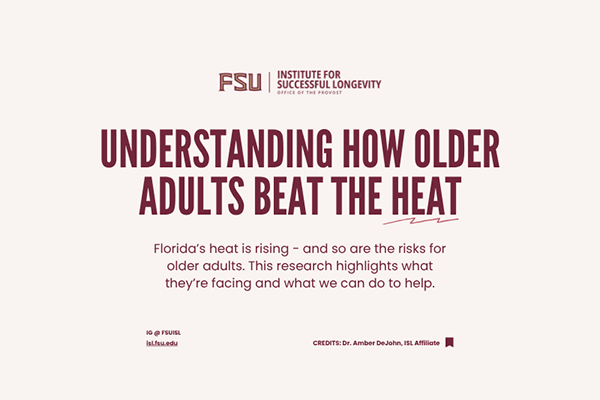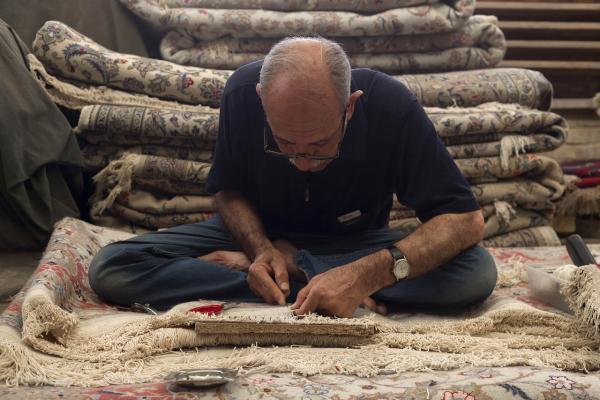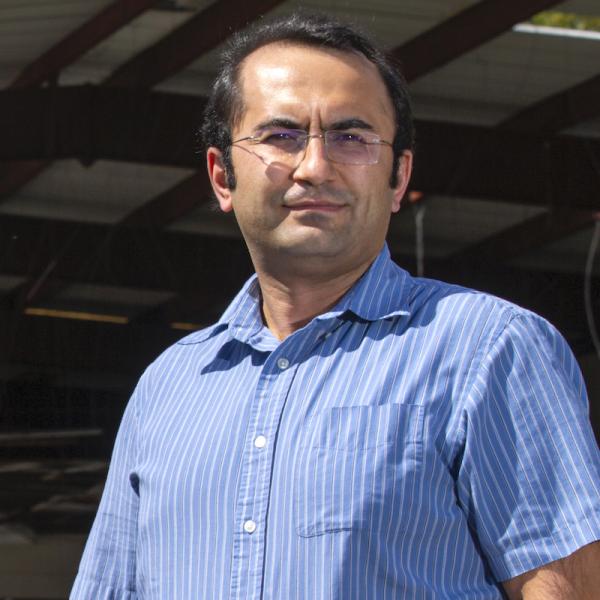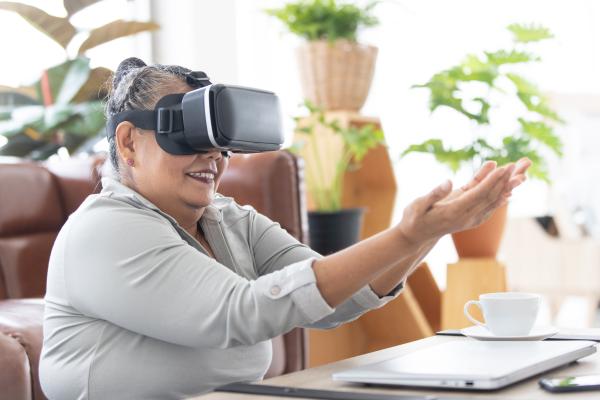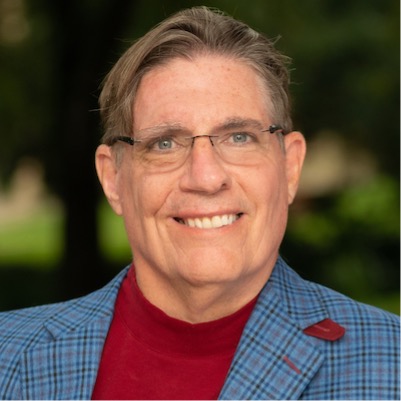Floridians are no strangers to extreme temperatures, but even by our standards things are heating up: summer 2024 was the hottest on record. By 2050, Florida is projected to experience more than 70 days each year with temperatures above 91°F.
Blog
I was thinking about the role of maintenance in successful longevity as I contemplated replacing a light bulb that had been flickering in a fixture in my home. My CREATE colleagues and I have written several books about designing for older adults (e.g., https://www.routledge.com/Designing-for-Older-Adults-Principles-and-Creative-Human-Factors-Approaches/Czaja-Boot-Charness
An article in the NYTimes https://www.nytimes.com/2023/06/28/business/china-jobs-age-discrimination-35.html noted that Chinese workers over the age of 35 are considered to be less job worthy than those under that age. This may come as a bit of a shock for Americans, long-accustomed to protection (often ineffective) from the Age Discrimination in Employment Act (ADEA) that prohibits discrimination against those age 40 and above
Our current CREATE V grant (www.create-center.org) has a project aimed at using technology to support health care decision making for older adults both without and with mild cognitive impairment. That project focused my attention on individual health decision making as opposed to the usual public health perspective I normally consider.
In an earlier Blog about Aduhelm, the first FDA approved drug for Alzheimer’s disease, I argued that there was no real benefit for the drug because the cognitive measures showed no significant advantage for Aduhelm over the placebo condition.
When I first arrived in Florida in 2013, Florida State University hadn’t experienced a hurricane for decades, and the Florida Panhandle wasn’t hit by a major storm for many years. But Hurricane Hermine hit Tallahassee in 2016, and Hurricane Michael made landfall around Mexico Beach in 2018. Since then, we have learned the importance of muscle memory in successfully responding to these extreme events.
Theories of successful aging point to the crucial role of social connections in promoting health, quality of life, and wellbeing. However, in the United States about 20% of men and 33% of women age 65 and older live alone, putting them at risk for social isolation. Age-related changes in health, mobility, employment status, and social network size can also increase isolation risk.
The recent article by Amy Keller within the May edition of Florida Trend was both illuminating and scary at the same time.
You may recall my early blog entry when vaccines first became available to the public for COVID prevention: https://isl.fsu.edu/article/youve-gotten-vaccine-can-life-now-return-normal.
Helping Older Adults Beat the Heat
Floridians are no strangers to extreme temperatures, but even by our standards things are heating up: summer 2024 was the hottest on record. By 2050, Florida is projected to experience more than 70 days each year with temperatures above 91°F.
Design for Maintenance
I was thinking about the role of maintenance in successful longevity as I contemplated replacing a light bulb that had been flickering in a fixture in my home. My CREATE colleagues and I have written several books about designing for older adults (e.g., https://www.routledge.com/Designing-for-Older-Adults-Principles-and-Creative-Human-Factors-Approaches/Czaja-Boot-Charness
At What Age are Workers too Old?
An article in the NYTimes https://www.nytimes.com/2023/06/28/business/china-jobs-age-discrimination-35.html noted that Chinese workers over the age of 35 are considered to be less job worthy than those under that age. This may come as a bit of a shock for Americans, long-accustomed to protection (often ineffective) from the Age Discrimination in Employment Act (ADEA) that prohibits discrimination against those age 40 and above
Public vs Private Health Decision Making
Our current CREATE V grant (www.create-center.org) has a project aimed at using technology to support health care decision making for older adults both without and with mild cognitive impairment. That project focused my attention on individual health decision making as opposed to the usual public health perspective I normally consider.
The new Lecanemab treatment for Dementia: How Useful?
In an earlier Blog about Aduhelm, the first FDA approved drug for Alzheimer’s disease, I argued that there was no real benefit for the drug because the cognitive measures showed no significant advantage for Aduhelm over the placebo condition.
Community muscle memory is the key to responding to the worst of hurricanes
When I first arrived in Florida in 2013, Florida State University hadn’t experienced a hurricane for decades, and the Florida Panhandle wasn’t hit by a major storm for many years. But Hurricane Hermine hit Tallahassee in 2016, and Hurricane Michael made landfall around Mexico Beach in 2018. Since then, we have learned the importance of muscle memory in successfully responding to these extreme events.
Researching novel technology solutions to support social and cognitive engagement
Theories of successful aging point to the crucial role of social connections in promoting health, quality of life, and wellbeing. However, in the United States about 20% of men and 33% of women age 65 and older live alone, putting them at risk for social isolation. Age-related changes in health, mobility, employment status, and social network size can also increase isolation risk.
Electric vehicles, revisited: Florida's future tech and people with disabilities
The recent article by Amy Keller within the May edition of Florida Trend was both illuminating and scary at the same time.
Older Adults and COVID: Still a Risk
You may recall my early blog entry when vaccines first became available to the public for COVID prevention: https://isl.fsu.edu/article/youve-gotten-vaccine-can-life-now-return-normal.

